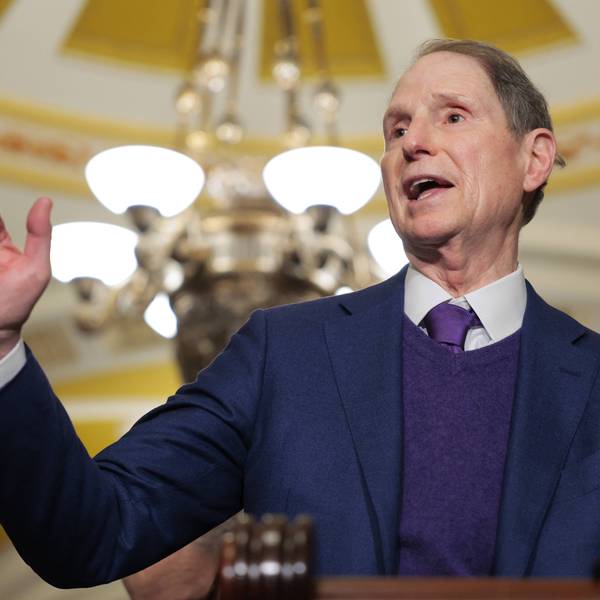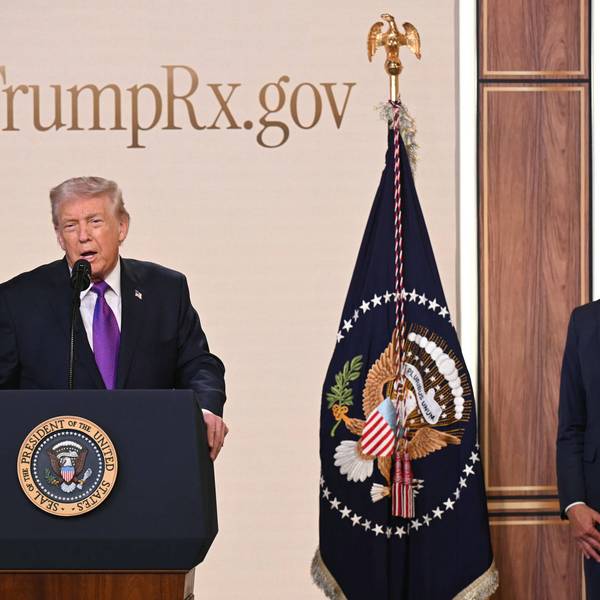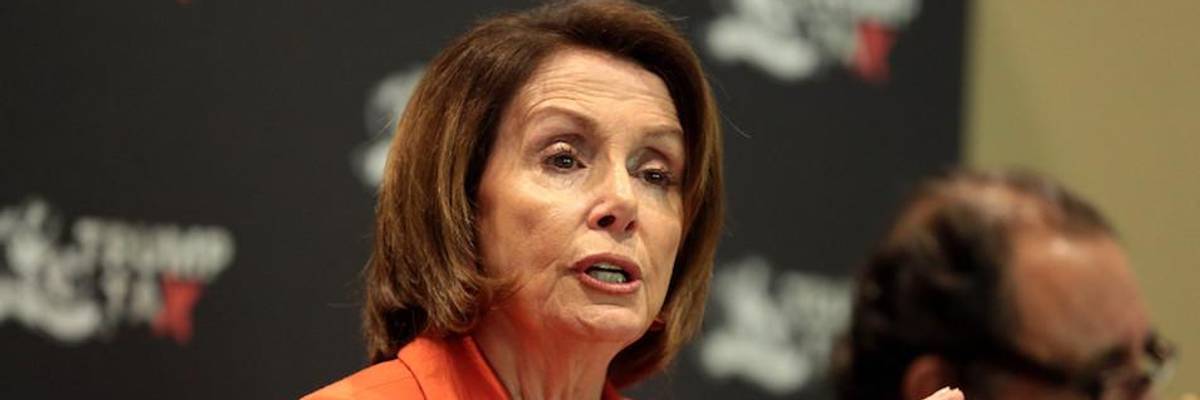Divisions in the Democratic House caucus over healthcare continued to deepen this week when the party's leader, Speaker Nancy Pelosi, informed members that drug pricing legislation will be designed to go easy on big pharma.
The new proposal, which Pelosi worked out with President Donald Trump, appears aimed at incremental change to the drug pricing system rather than the kind of relief health activists have been clamoring for over the past year.
"It creates this hocus-pocus process that isn't going to lower prescription drug prices," John Hassell, the national director of advocacy for advocacy group the AIDS Healthcare Foundation, told HuffPost. "It's going to nickel and dime it on the sides."
A Thursday evening in-depth HuffPost report on the bill lays out the legislation's scope--such as it is. The plan calls for allowing the secretary of health and human services to negotiate with drug companies for lower drug prices. Should the companies and secretary fail to reach an agreement, the Government Accountability Office is empowered to take over and set a price that aligns with how much the drugs go for overseas.
Per HuffPost:
The Department of Health and Human Services would be required to negotiate on at least 25 drugs each year, and companies that refused to participate would be slapped with a tax equal to 50 percent of their prior year's sales of the drug. Prices on all drugs covered under Medicare Parts B and D could not be increased going forward, and any company that still did so would have 100% of the price hike taxed away.
The HuffPost report comes more than two weeks after a Mother Jones piece that featured progressives wondering why there was even a debate over whether to "throw down" on drug prices.
"We're at the point where a deal is getting made on drug pricing, and this bill is the one that is progressive, bold, and has a huge amount of support," an aide to a member of the Congressional Progressive Caucus (CPC) told Mother Jones. "This is the moment to throw down."
The plan may be dead on arrival anyway--reporting from The Hill Friday claims that the current feud between the president and the speaker may be fatal to the proposal. In a statement, Pelosi spokesman Henry Connelly said that the speaker would continue fighting for drug pricing changes.
" House Democrats are determined to advance bold, tough legislation to lower prescription drug prices, and we are moving forward no matter what this White House does," said Connelly.
In April, journalist David Dayen reported in The Intercept that Pelosi's views on drug pricing were being influenced by her advisor Wendell Primus, a pharmaceutical industry advocate, emphasizing the outsized influence of powerful drug interests on the Speaker.
According to Dayen, Pelosi told her caucus briefly about the plan on Wednesday as part of a meeting that was called to focus on issues around impeaching the president and administration misbehavior.
"I was told she unveiled this at a caucus meeting, on the SAME DAY that Trump stormed out of the White House on her, by reading it off a piece of paper and taking no questions," Dayen said in an email.
Critics of the Pelosi plan HuffPost spoke to called the proposal insufficient and said it doesn't cover enough drugs. And, as HuffPost pointed out, there's no way to ensure that the government will act on behalf of consumers.
"There is also nothing as yet to prevent HHS from simply negotiating bad deals that do not meaningfully lower drug prices," said HuffPost.
Members of the House Congressional Progressive Caucus (CPC), which pushed for more comprehensive drug pricing reforms, were largely silent on the bill.
But activists like Public Citizen's Access to Medicines' Steven Knievel, were not. A drug pricing program that only takes care of 25 drugs a year, Knievel said, is unacceptable.
"They need to do more," said Knievel. "Our demand is to do all drugs."




